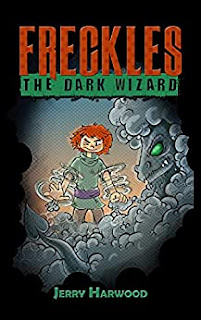Today let's talk about editing!
Maybe if you are a plotter editing is a joy? I've met a few weird souls who seem to thrive on revision and editing. For a pantser it can be painstakingly difficult.
I've already given my first tip I've discovered. I write my first draft by hand. This forces me to edit as I move my penscratch to computer. However, I feel the struggle. Just like the middle of the book can feel like an anchor weight... so can the idea of meticulously going through hundreds of pages.
Good news! Remember that talk we had about WHY you write? If you are not in love with the idea of editing then feel the freedom to freelance / contract out the work to others!!! I know there are authors who don't want to let their newborn manuscript out into the world until it is completely perfect. If you are such a person, let me encourage you to write down "WHAT DOES A 'PPERFECT' MANUSCRIPT MEAN TO ME?" The answer should not be more than three snetences or several bullet points.
Here is mine for Freckles: The Dark Wizard.
- First chapter that connects my wizard world to a middle school kid while showing the magic
- clear main story arc
- laugh when read
- minimal distracting editorial issues (grammar, consistency issues, confusing narratives)
And for Twelve Hours on the Block:
A edge of your seat action ride from chapter to chapter with comic relief between the two main characters. Story should get crazier and crazier but never violate the reader's suspension of disbelief created with opening scene where "Hummingbird" (Aztec god) rips a man's bleeding heart out.
If you can pinpoint what it means for you to release your story to others, then you have a goal to work toward. Ultimately, you will have to share it to be heard. So figure out when that is for you.
Now, when I first started writing I was overwhelmed with terms like proof reader, beta reader, content editor, developmental editor, copy editor, critique partner, or online editing software. Let me offer my humble take on all of this. You have three stages of editing:
I grew up helping my dad in his workshop. If it helps, think about this like sandpaper. You do not pass over a project the first time with 220 grit fine sandpaper. You are wasting your time and will ruin the sandpaper. First, you use a coarse grain (40 or 50 grit) to get rid of rough edges and large issues. Then you use a medium grit (80) to give the project a unified look. When you get to fine grit (120) you aren't even doing enough to take off a varnish. Yet, the last strokes are the one that make the project a masterpiece.-1. BIG ISSUES (40-50 grit sandpaper)
These are the massive problems that demand rewriting whole characters, major plot points, changing the novel's POV (point of view). These take a lot of time to fix and perhaps create more repairs along the way.
One of my dear mentors says that the author makes promises to the reader along the way. If we introduce a wizard with a secret pendant he wears under his cloak, we are promising the reader that pendant will be used. If we tell the reader the heroine has never been kissed, we are promising there will minimally be a kiss in the story. Some promises are key. in fact, there is probably one central question to your story. For my twelve Hours on the Block it is "Will the two main characters survive?" Along the way they meet two girls ("Can they rescue their new relationships") and a woman who swears she will die trying to get out (yes, she does). Apart from major content editing of plot, world, characters, and subplots you must also make sure the reader can follow your engaging story, satisfied in the end.
-2. MEDIUM ISSUES (80 grit sandpaper)
Here we are looking at smaller issues. They may be within a specific scene or chapter or may be a small add, subtraction, or revision to the novel to support the story. It may be adding something in earlier to prepare the reader, changing something about a character necessary to the plot, or answering a small unanswered question.
In my book, Freckles: the Dark Wizard, Simon (MC) sees a picture of his dad winning the school RumpleBottom trophy with his mom on his dad's shoulders in a victory celebration. It was a promise to the reader regarding what would happen in the end with Simon's love interest (medium size promise) if Simon won the tournament (big promise)
-3. SMALL ISSUES (120 grit sandpaper)
Here is where you make the work ready for publication. Spelling. Commas. Dialogue tags. passive Voice. Show, Don't Tell. And my personal favorite, not putting two spaces between sentences (apologies to my editor!! I grew up using typewriters!).
I know. I worked hard to develop cool sounding terms. Now, for each layer you have three options:
-1. Do it your self (well... except for "small issues." That one needs outside eyes.)
-2. Pay someone to do it.
-3. Coerce, Bribe, or Beg someone to help.
Next Wednesday we will dive in!




No comments:
Post a Comment